
How donating blood helps cancer patients FROM PATIENT TO PROVIDER
Adrian Portillo deals with a cancer diagnosis and loss, but stays committed to helping others.
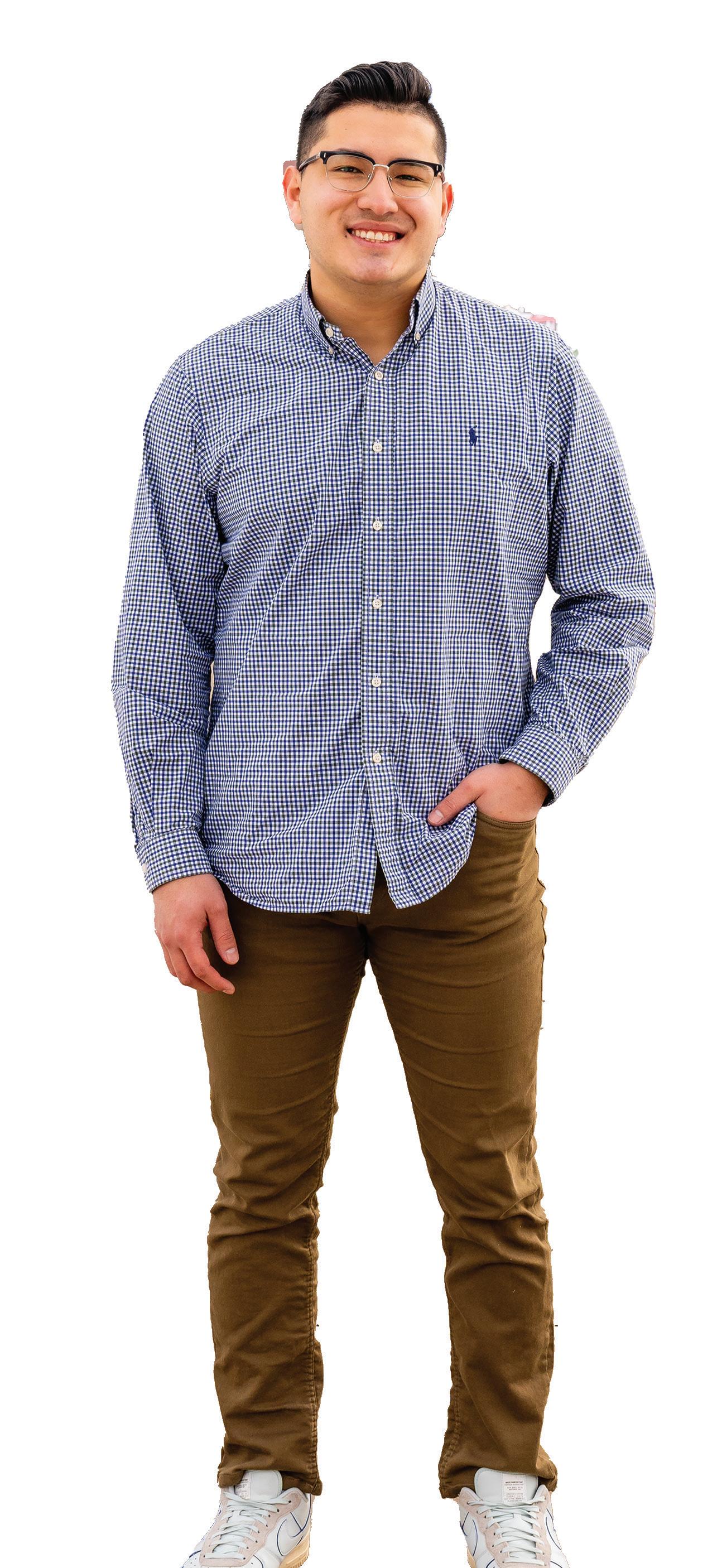
HOW
YOU
12 shape the patient experience
TIPS FOR NAVIGATING A CANCER DIAGNOSIS
HUNTSMAN CANCER INSTITUTE Winter/Spring 2024 | Free Magazine
BLOOD LIFE GIVE GIVE
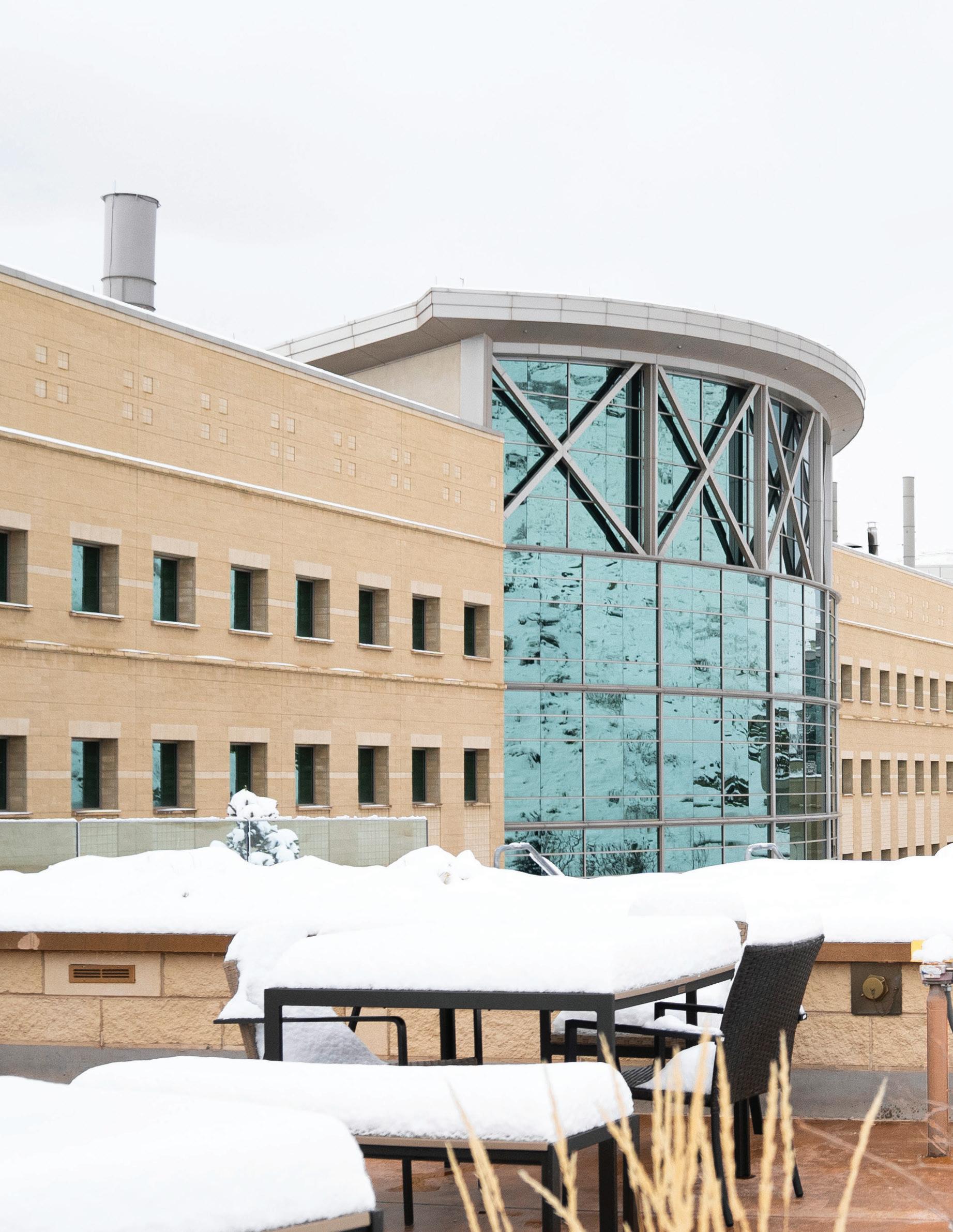
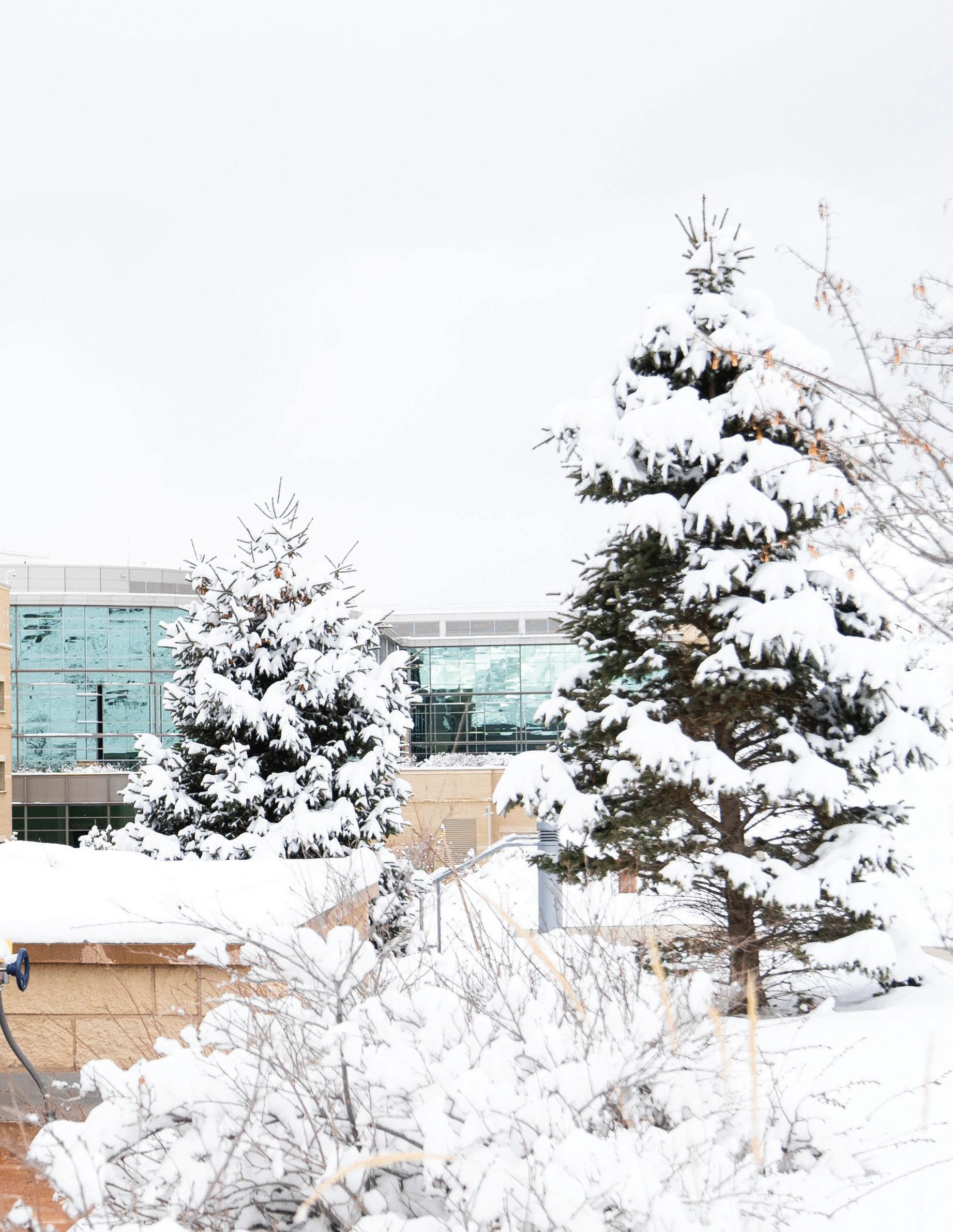
Passionate individuals and teams delivering a cancer-free frontier through scientific discovery and human touch huntsmancancer.org Our Vision
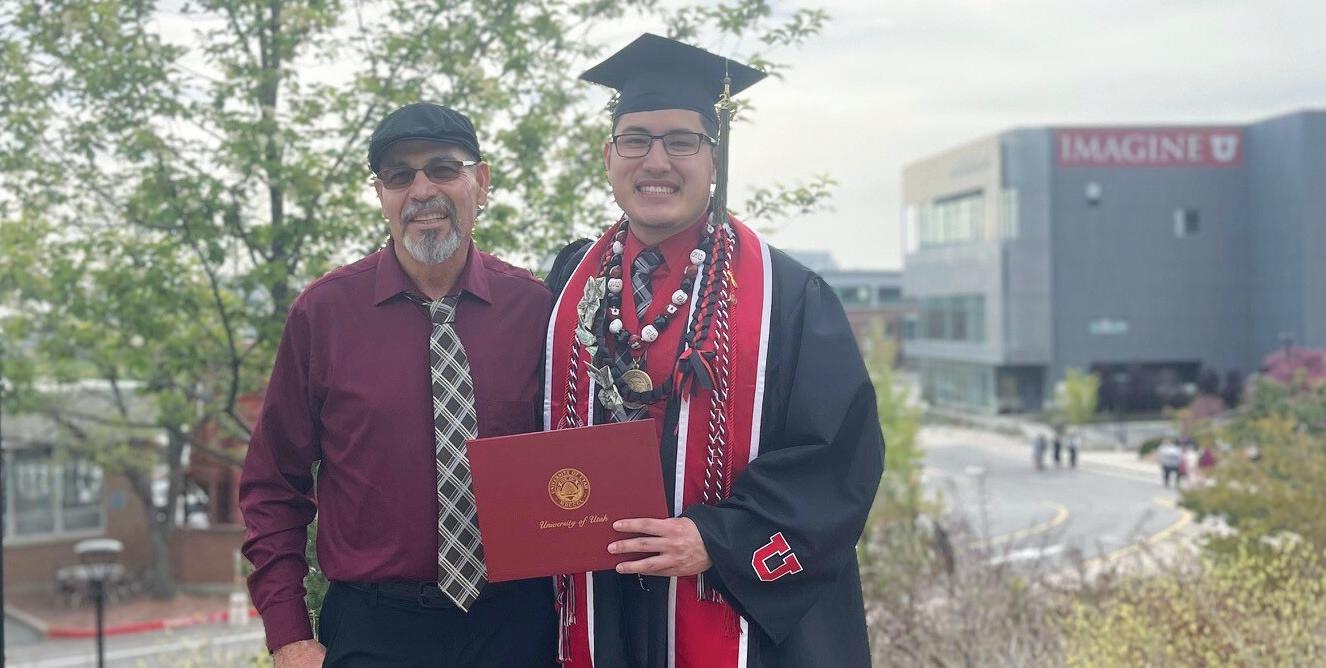
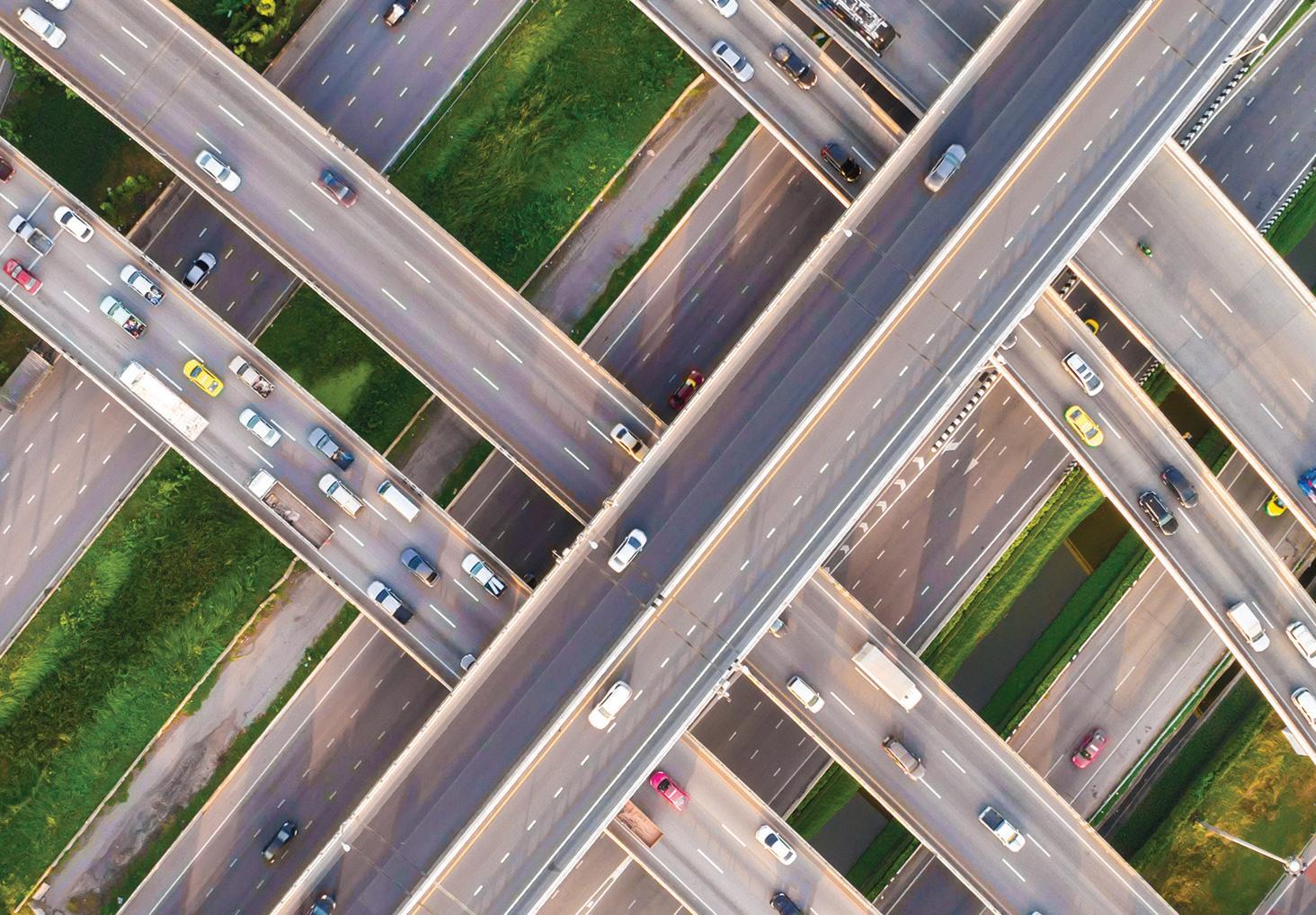
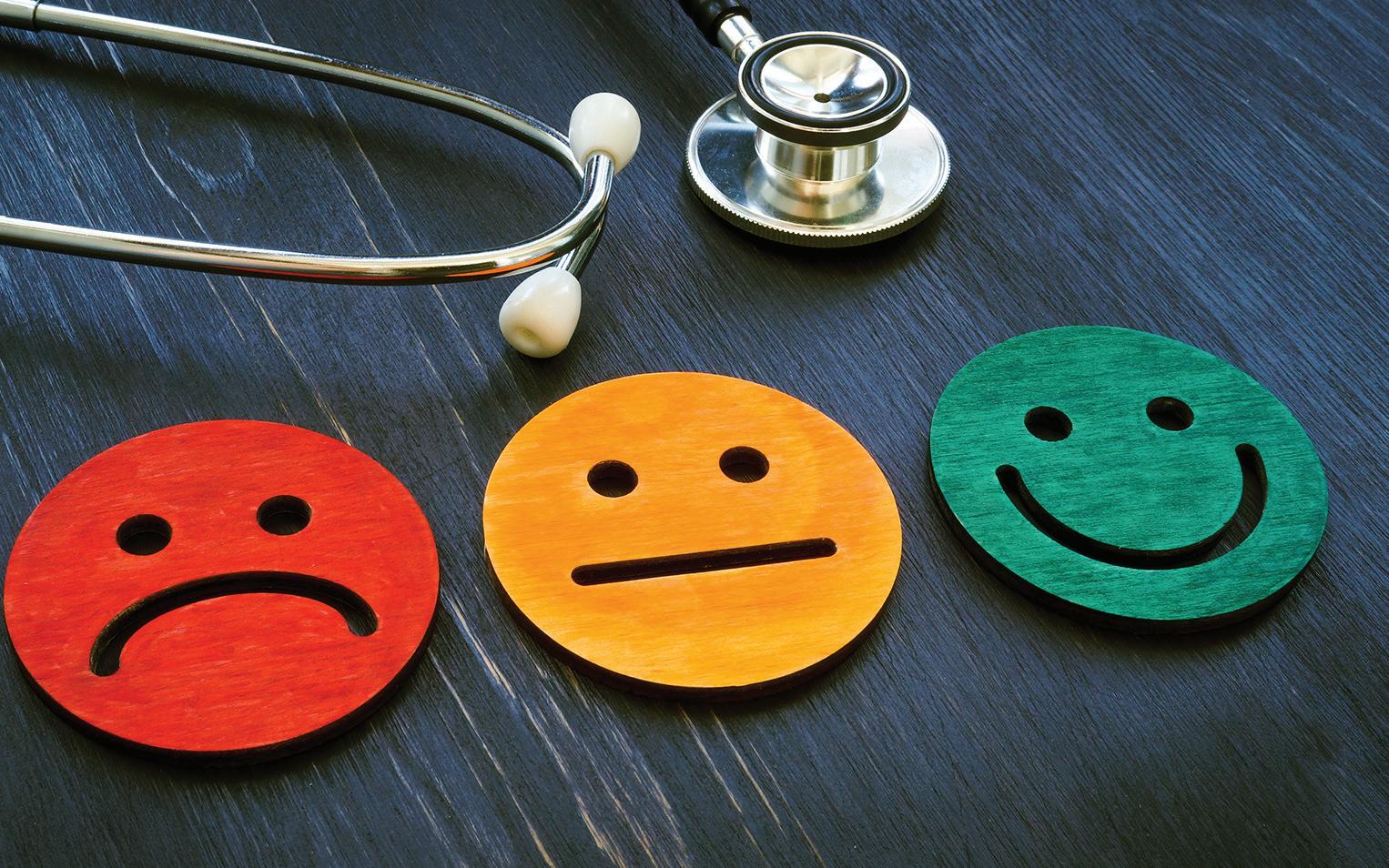
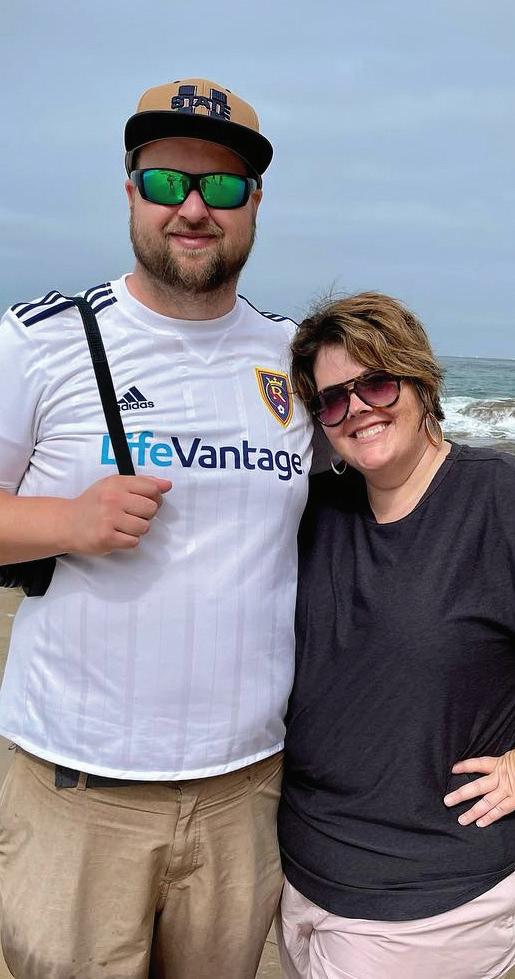
06 20 16 14
Turning Pain into Purpose
Cancer and grief fuel a young man’s resolve to help others
Navigating a New Road with Cancer
Tips to cope with the life changes that come with a cancer diagnosis
Patient Experience Scores
How your opinion helps shape the patient experience at Huntsman Cancer Institute
Labor of Love
An honest look at cancer caregiving
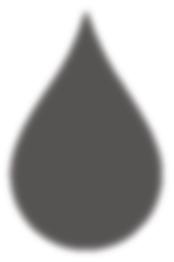
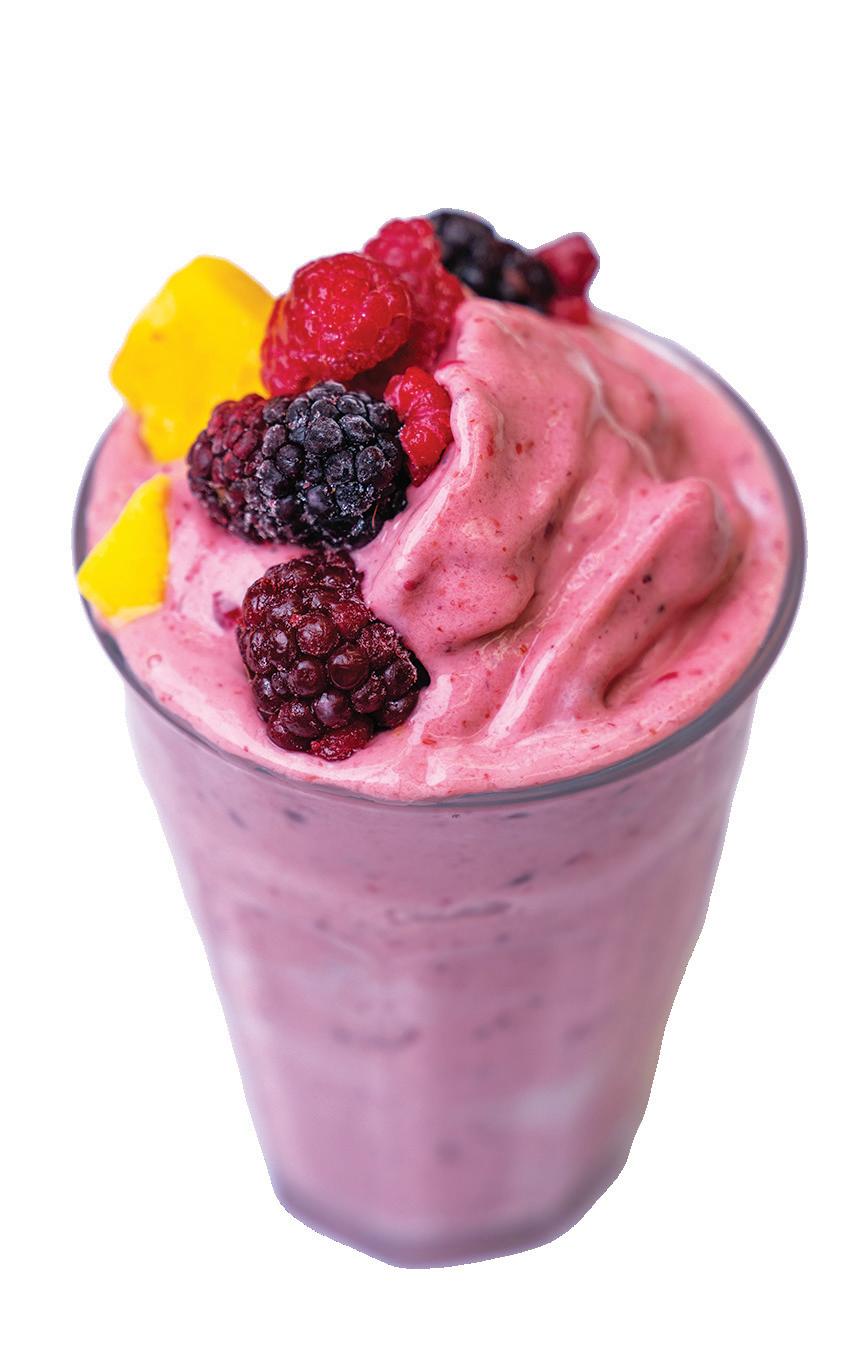
Helix shares helpful tips, hopeful stories, and notable happenings across our cancer hospital, research labs, and community clinics. A DNA molecule is formed as two intertwined helixes. The helix helps tell the human story— it is a symbol of unity and discovery. The double helix is prominent in the Huntsman Cancer Institute logo and a meaningful emblem of our mission.
Published twice a year by Huntsman Cancer Institute at the University of Utah. Conceptualized, written, and created by the in-house Communications and Public Affairs team.
Creative Director
Meredith Vehar, MPA
Lead Designer
Claire Davis, MS
Graphic Designer
Mo Starr
Writer/Editor
Drew Wiseman
Photographer
Emily Bade
Project Manager
Matti McDaniel, MBA
Contributors
Communications and Public Affairs team, Wellness Center team, and the Huntsman Cancer Foundation team
Send
3
feedback
Healthy Recipes from the BOOST Study Taking Action against Radon 13 24 19 22 Wellness Crossword How Blood Donations Help 06 14
20
and ideas to allc@hci.utah.edu.
16
HUNTSMAN CANCER INSTITUTE
NATIONAL NEWS SPOTLIGHT
AS SEEN ON

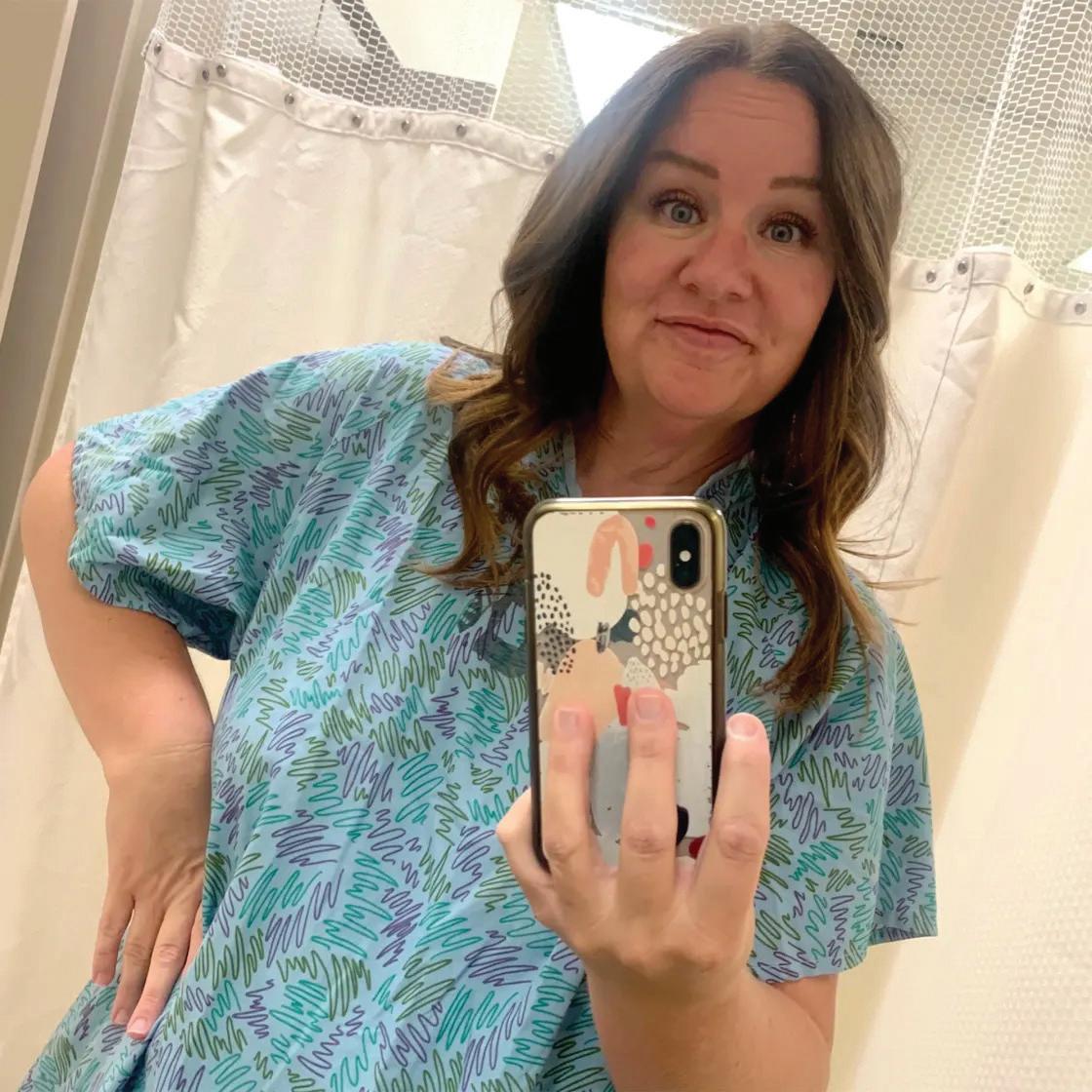
Removing cancerous breast lumps without surgery may soon be possible. Cindy Matsen, MD, a breast surgeon at Huntsman Cancer Institute and associate professor in the Department of Surgery at the University of Utah, and patient Jade Barton of Vernal, Utah, tell about this groundbreaking procedure on Today.com.
This particular technique is using ultrasound to heat up the tumor and kill it. I think it has a lot of potential, and we’re really hoping within the next few years, we can make it more available for people.
CINDY MATSEN, MD
Breast Surgeon
If a woman doesn’t have to go through the surgery and the recovery and can go get a few of these ablation treatments— what a remarkable thing. I was literally in no pain, no nothing. I felt great afterward.
4
JADE BARTON Patient
Jade Barton
CANCER-FREE FRONTIER
A podcast from HUNTSMAN CANCER INSTITUTE

5
LISTEN & SUBSCRIBE huntsmancancer.org/podcast

Turning PAIN PURPOSE INTO
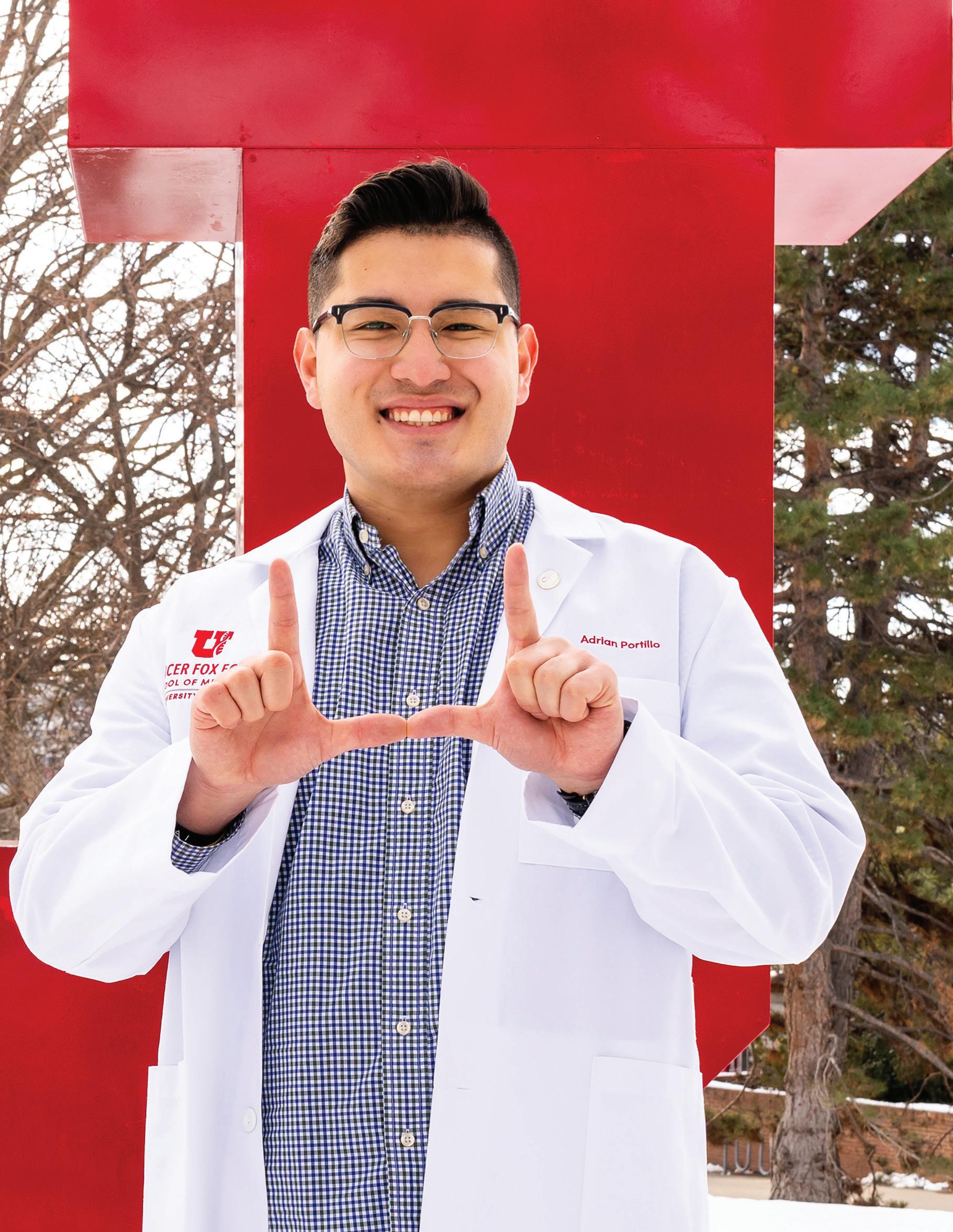 Medical student Adrian Portillo
Medical student Adrian Portillo
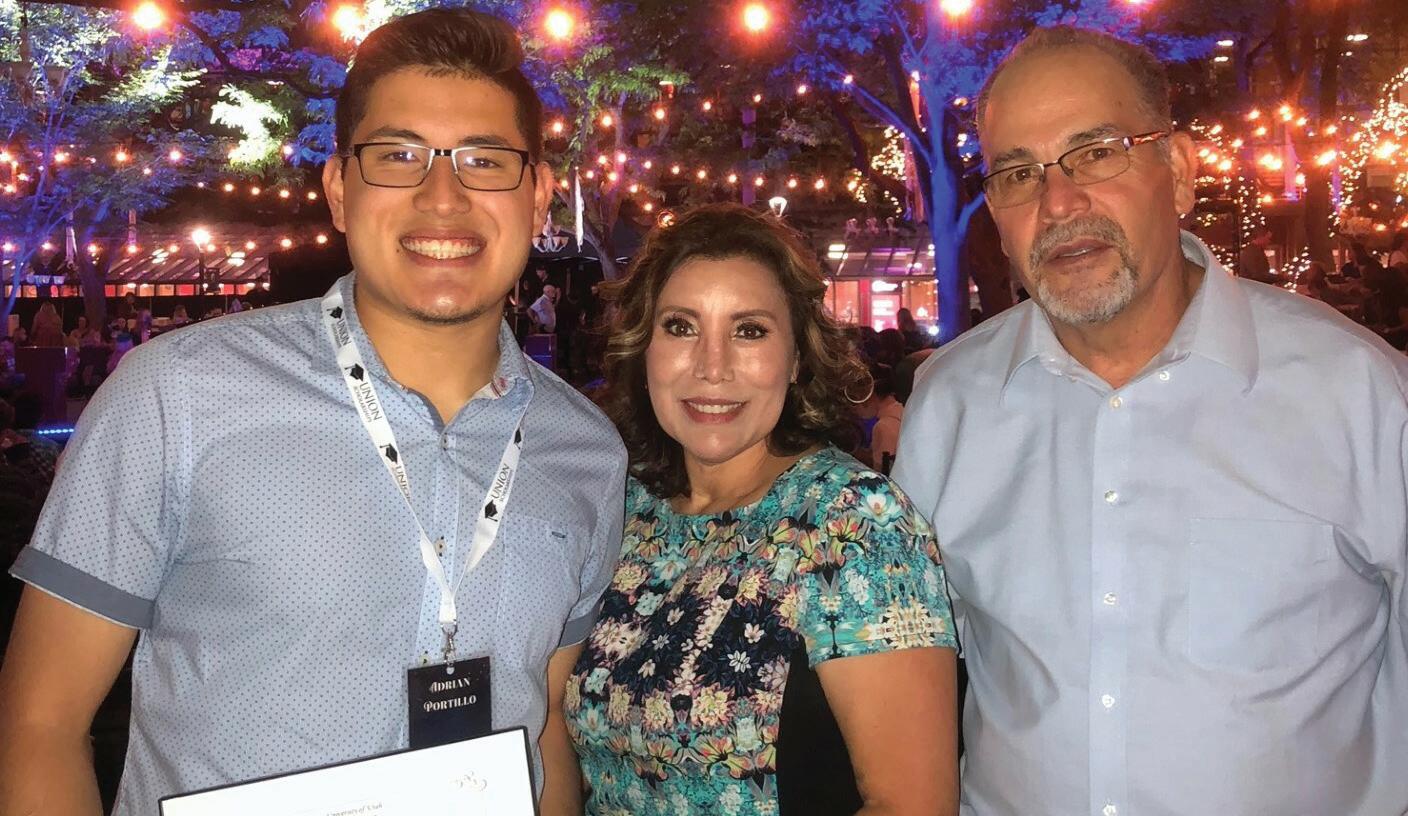
Adrian Portillo comes home from another day of school and is reminded of his father, Fidel. From the pictures lining the halls to those filling photo albums, Adrian sees him. When he walks out back and spies the deck and shed his dad built, Adrian feels him. As Adrian retires to the renovated basement, another credit to his dad’s handiwork, he heads to a back room filled with LEGO landscapes—the start of a small city. “I love to create things. Putting things together with my hands— that’s my dad coming through.”
“He’s like his father in a lot of ways—honest, smart, wants to do what’s best for people,
a hard worker,” says Adrian’s mother, Maria. “He’s been through so much and I am very proud of the person he has become. His father would be, too.”
When Adrian was a senior in high school, he felt intense discomfort in his arm. “It felt like I had been punched. My athletic trainer thought I pulled a muscle. I knew something was different,” he says. The pain persisted even as Adrian graduated high school and started at Salt Lake Community College. “One day, I was bench pressing with a buddy and my arm just gave out. I couldn’t feel anything except for the bar—because it fell on my chest. I got an x-ray immediately and
8
Adrian with his mother, Maria, and late father, Fidel.

they found a mass pushing up against one of the main nerves in my arm.”
Adrian was referred to Huntsman Cancer Institute to meet with a sarcoma team. He wondered why he had been sent to a cancer hospital for arm pain. “I volunteered with Make-A-Wish during high school and met a girl with osteosarcoma who eventually passed. The gears started turning in my head and then it all clicked,” he says. “How did I get this rare cancer? I exercise. I don’t do anything that would cause this. I thought it was impossible. That was the lowest point.”
A biopsy showed a low-grade malignant tumor. Adrian was told there was a 70% long-term survival rate, which he took as the first good news during the whole process. Yet there was a chance the cancer could come back and spread. “It started to set in that life is fragile,” Adrian says. “People don’t usually get that experience at my age. It builds character.”
The first summer after surgery on his arm, doctors found a nodule in Adrian’s lung. At that point while he was still recovering, a biopsy wasn’t possible for another six weeks. Adrian started to think about whether he should be back in school or spend his time traveling the world. “I was a first-generation college student. My mom got her GED here in the U.S. and my dad did construction. That had always been my plan,” he says. Thankfully, the nodule turned out to be benign.
“I didn’t want to waste the second chance I had been given,” Adrian explains. “I felt that if I could overcome this, then I would want to dedicate my life to caring for others.”
During his time at Huntsman Cancer Institute, Adrian started to love medicine. “I was always interested, but my doctor, John Groundland, had an impact on me that I wanted to have on others. Seeing him take care of people—that dedication was inspiring. I remember talking to my
9
CONTINUED ON NEXT PAGE
Adrian recovering at Huntsman Cancer Institute after surgery to remove a mass in his arm.
care team and telling them I got into medical school. One of the physician assistants gave me a huge hug. They cared so much.”
However, another cancer diagnosis was about to occur. But not for Adrian.
In 2022, Fidel learned he had esophageal cancer and eventually passed away only a few weeks after retiring. “He worked in power plants and chemical plants, so he thought that’s what caused it. When he was diagnosed, I was so mad. My dad shouldn’t have to go through this,” Adrian says.
Instead of being hardened emotionally, Adrian’s resolve was strengthened. “I always admired my dad’s positivity and strength. I never saw him cry and I knew he wanted to. He worked in terrible environments and was underpaid because that’s all that was available to him. My dad’s passing just solidified that this is what I was meant to do.”
Adrian volunteered at Primary Children’s Hospital, offering support to Spanish-
speaking parents. “They were stressed. Whether it was money, work, insurance— I just wanted to break down some of the barriers.” Adrian knew the importance of this role based on obstacles from his own experience.
“I remember asking people at school if they wanted to form a study group and they declined. Then I saw them all create a study group of their own, without me in it. My heart sank. Why am I different? Is it the way I talk? The way I dress? Then, another time, I had to draw blood from a patient at work. He said some nasty things about my roots. I was shocked and upset. But it’s who I am. I turned it into motivation. I love who I am and where I come from.”
After wrapping up his first semester of medical school at the University of Utah in the fall of 2023, Adrian was quick to point out the support he has received. “I’ve seen a lot of programs at Huntsman Cancer Institute and the U that recognize different
He’s like his father in a lot of ways— honest, smart, wants to do what’s best for people, a hard worker... I am proud of the person he’s become. HIS FATHER WOULD BE, TOO.
- ADRIAN’S MOTHER, MARIA
10
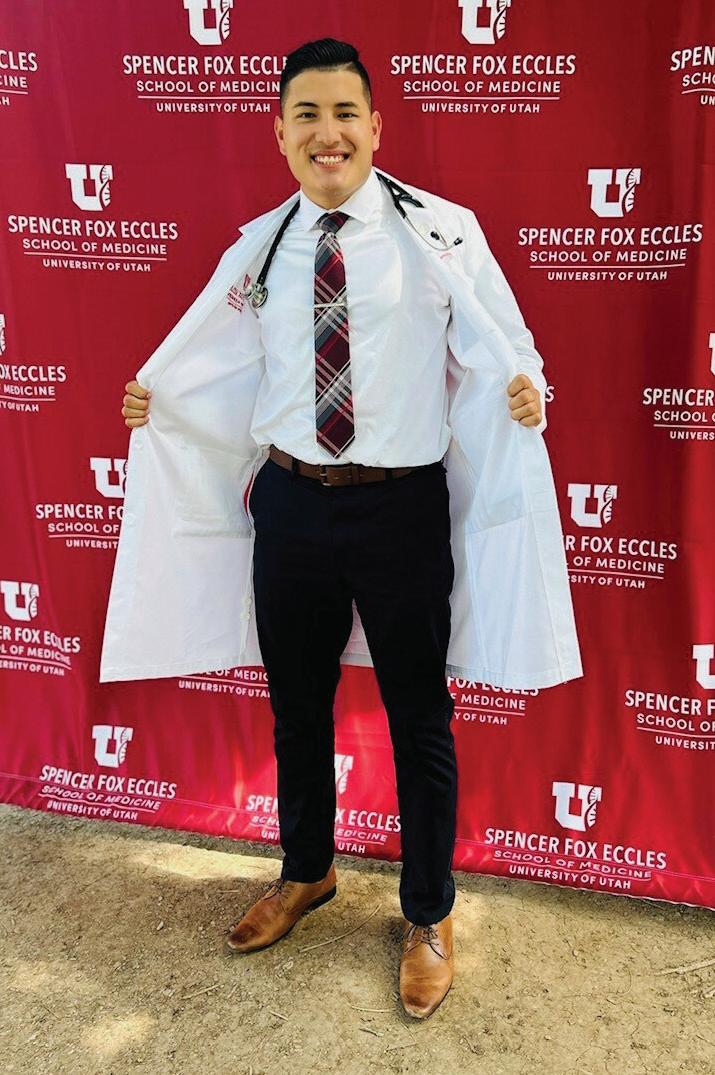
cultures, and that’s so important. I’m grateful people here take the time to try and understand.”
Adrian knows people have misconceptions about him and that’s why he also knows he has to be an advocate for his culture. “There are a lot of Spanish-speaking people in Utah. I don’t think others know the struggles many of them face. My parents faced so many issues. That’s why I’m trying to build confidence in my community by diversifying the field of medicine, talking to people about their experiences, and
I felt that if I could overcome this, then I would want to DEDICATE MY LIFE TO CARING FOR OTHERS.
- ADRIAN PORTILLO
sharing the troubles they’ve faced in order to move forward.”
Adrian has found his calling. He has been cancer free since 2018, on pace to graduate in 2027, and currently has an interest in orthopedic oncology. His brother, Josue, is carving his own path in pharmaceutical school.
“Grief is hard and losing someone isn’t easy. I miss my dad like crazy. I want to talk to him and share with him everything I have accomplished so far. Hardships can devastate us or motivate us. I wouldn’t have my drive to succeed without my experiences. I want to be able to take another family’s grief away.”
11
Adrian receives his White Coat at the annual ceremony, a rite of passage for medical students.
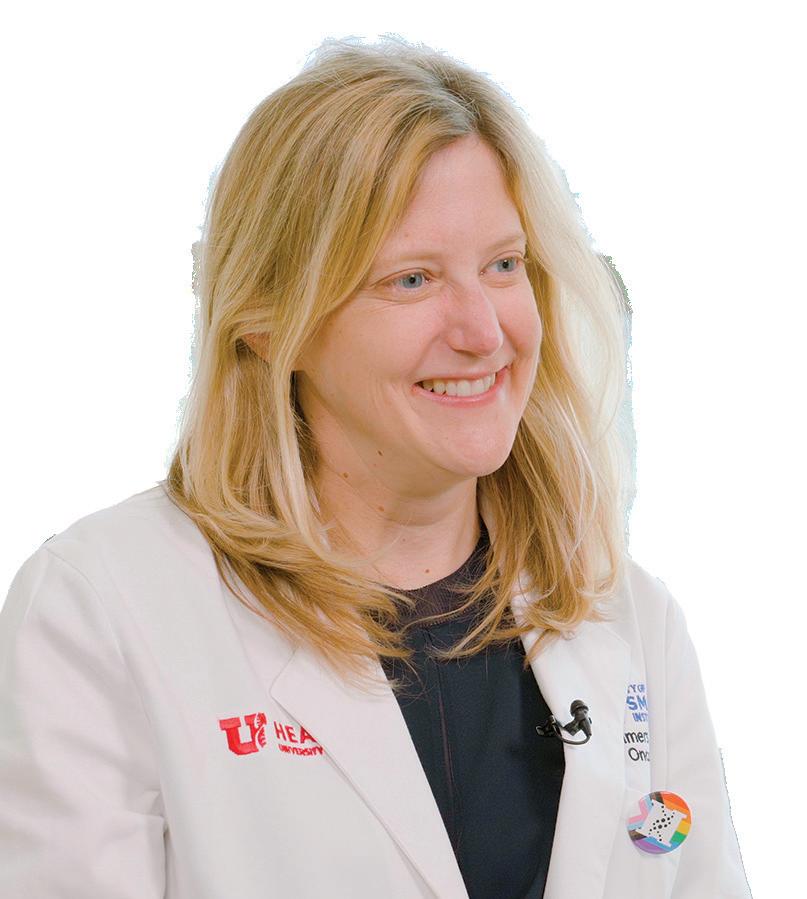
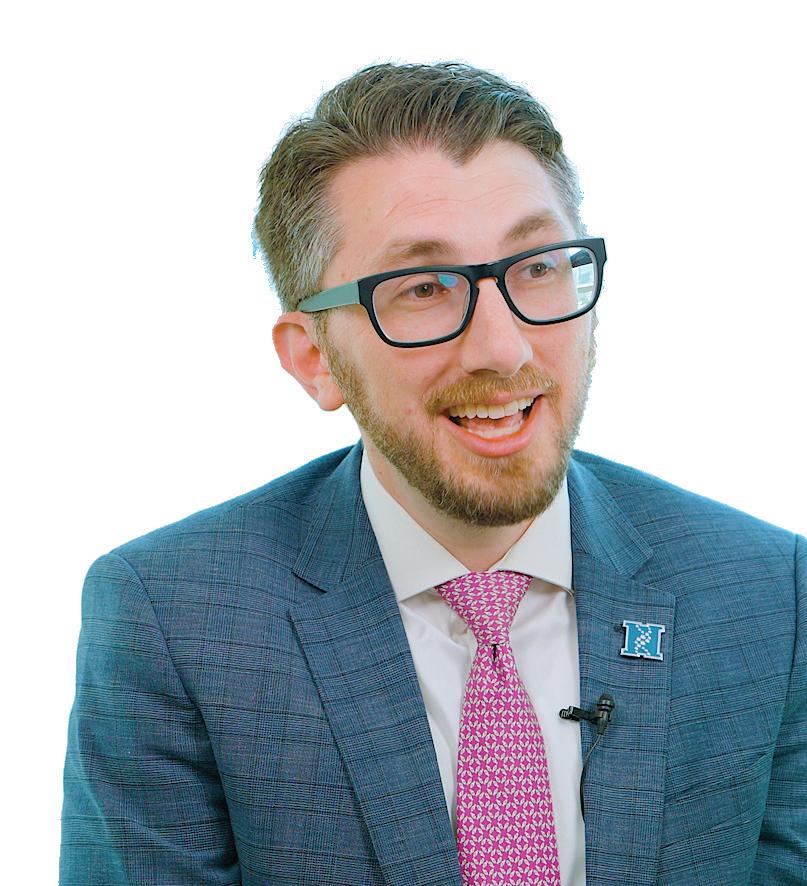
TALKS with DOCS
Get to know Huntsman Cancer Institute’s MDs and PhDs through conversations about their meaningful work and their lives outside the lab or clinic.
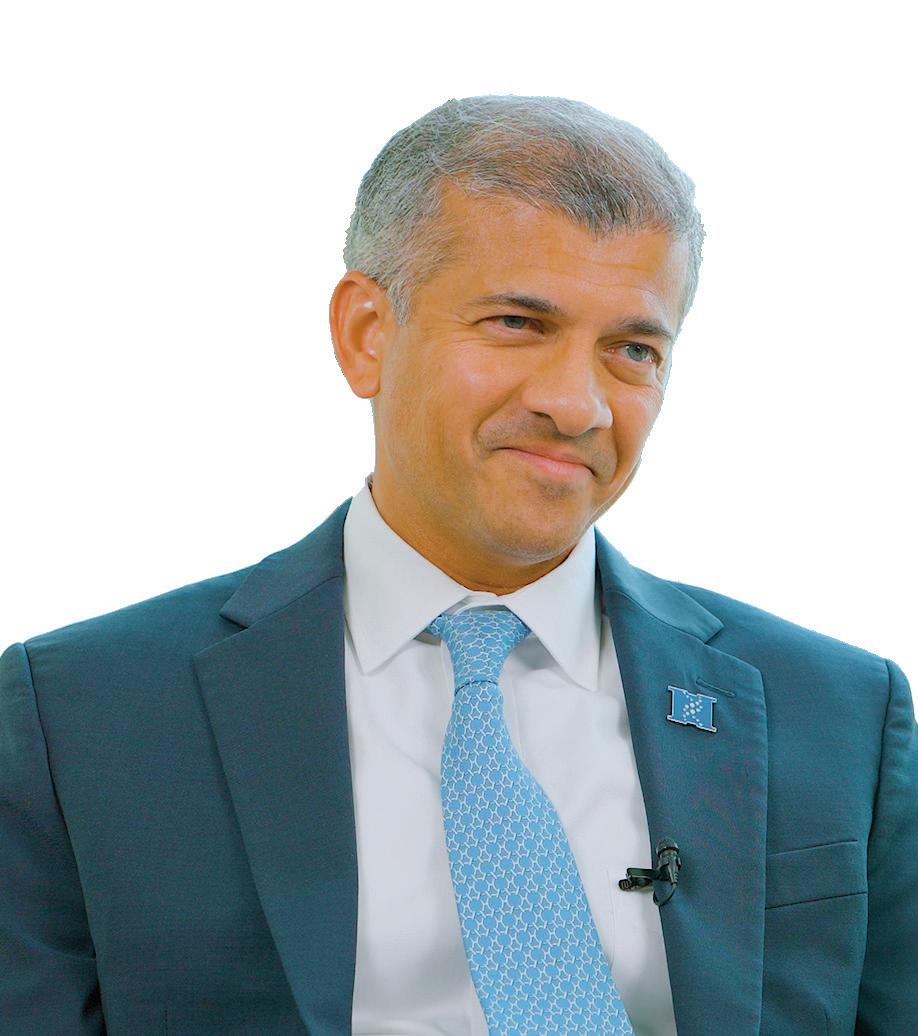

12
Brian Mitzman, MD, MSCI
Erin Ward, MD
Anna Chalmers, MD
Sachin Apte, MD, MS, MBA
TAKE ACTION.
TEST FOR RADON TO PREVENT CANCER.
WHO SHOULD TEST?
EVERYONE should test their home for radon every two to five years. Regular testing is the ONLY way to know your home’s radon level.
WHAT IS RADON?
Radon is a radioactive gas that forms when uranium in the soil breaks down. It can enter homes and buildings. YOU CAN’T SEE, TASTE, OR SMELL RADON.
HOW DOES RADON CAUSE CANCER?
Breathing radon over time can damage cells in the lungs. It is the second-leading CAUSE OF LUNG CANCER.
TESTING YOUR HOME FOR RADON IS EASY AND INEXPENSIVE.
HOW TO TEST?
Purchase or find a radon test kit at EPA.GOV/RADON. Follow the instructions on the test kit. Mail it in and get your results in a few weeks.
QUESTIONS? 1-888-424-2100
HIGH RADON LEVELS?
If your results show high radon levels, you may need to TAKE ACTION. This may include a second test, or a process called mitigation to fix the problem.
huntsmancancer.org/prevention
13
NAVIGATING A NEW ROAD WITH CANCER

Cancer can be a life-altering experience for patients and the people who love them. Emotional, psychological, physical, spiritual, and practical shifts can reroute your life and plans for the future. Learning to navigate this new road and rediscover a sense of who you are and how you will live your life going forward are important aspects of healing and survivorship.
Remember, cancer does not define you.
Be kind to yourself.
Take it one day at a time and try to be in the moment.
Simplify, simplify, simplify.
Try to get enough sleep. Save your energy for the things you value most.
Practice meditation or relaxation techniques.
Adjust expectations of yourself and others.
Try to avoid dwelling on what you cannot do and focus on what you can do.
Join a support group or talk to someone else who has experienced a cancer diagnosis. It helps to know you are not alone.
Talk to a trusted family member, friend, member of the clergy, or social worker.
Ask for help when you need it. This is not a weakness—it takes strength and self-awareness.
Social workers with Huntsman Cancer Institute’s Patient and Family Support team help people with cancer and their loved ones cope with the emotions and life changes brought about by a diagnosis.
Learn more: huntsmancancer.org/support
15
PATIENT EXPERIENCE SURVEYS
Why They Matter
At Huntsman Cancer Institute, our patients are at the center of everything we do. From the first interaction to the last treatment and into survivorship, we recognize we are meeting and caring for people at one of the hardest times in their life. While in our care, the patient’s experience is of the utmost importance to us.
After each appointment, patients receive an invitation to complete a personalized survey that asks them to provide feedback.
“Our goal is to really listen to patients throughout their whole continuum of care and be able to improve their
experience,” says A’Lisha Finch, director of business operations. “We can’t improve unless we know what’s going well and what is not going well. Through these surveys, we can recognize our staff for the great work they are doing to make an impact and improve patients’ lives.”
Patient comments are also posted online in the form of reviews for each provider. These reviews help other patients make informed decisions about their care.
Your opinion matters. We want to hear from you. If you receive a survey about your visit, please complete it.
16
The experience at Huntsman Cancer Institute is always patient care first. Every staff encounter is a 10+. I could not ask for any better care and professionalism. The staff is wonderful on all levels.
Clinic 2K Patient
SO important to have a friendly smile when a patient is checking in. What a difference from most places.
Infusion Patient
Every single person who cares for me CARES. You are the reason I will recommend anyone with this awful thing we call cancer to seek care from Huntsman Cancer Institute.
Surgical Oncology Unit Patient
Everyone is so professional, prompt, friendly, and welcoming. Why would anyone want to go anywhere else?
Endoscopy Clinic Patient
Everyone has been wonderful, accommodating, and helpful. We appreciate everyone. Valet parking is helpful. Thanks to everyone!
Clinic 1A Patient
The staff is extremely professional and caring. I have been treated with kindness and compassion. I was also educated on my cancer by my doctor and nurses. If I have to be at a hospital, I am so happy and feel blessed to be here at Huntsman Cancer Institute. The care and peace I feel with each staff member—they even know about my kids and husband.
Infusion Patient
17
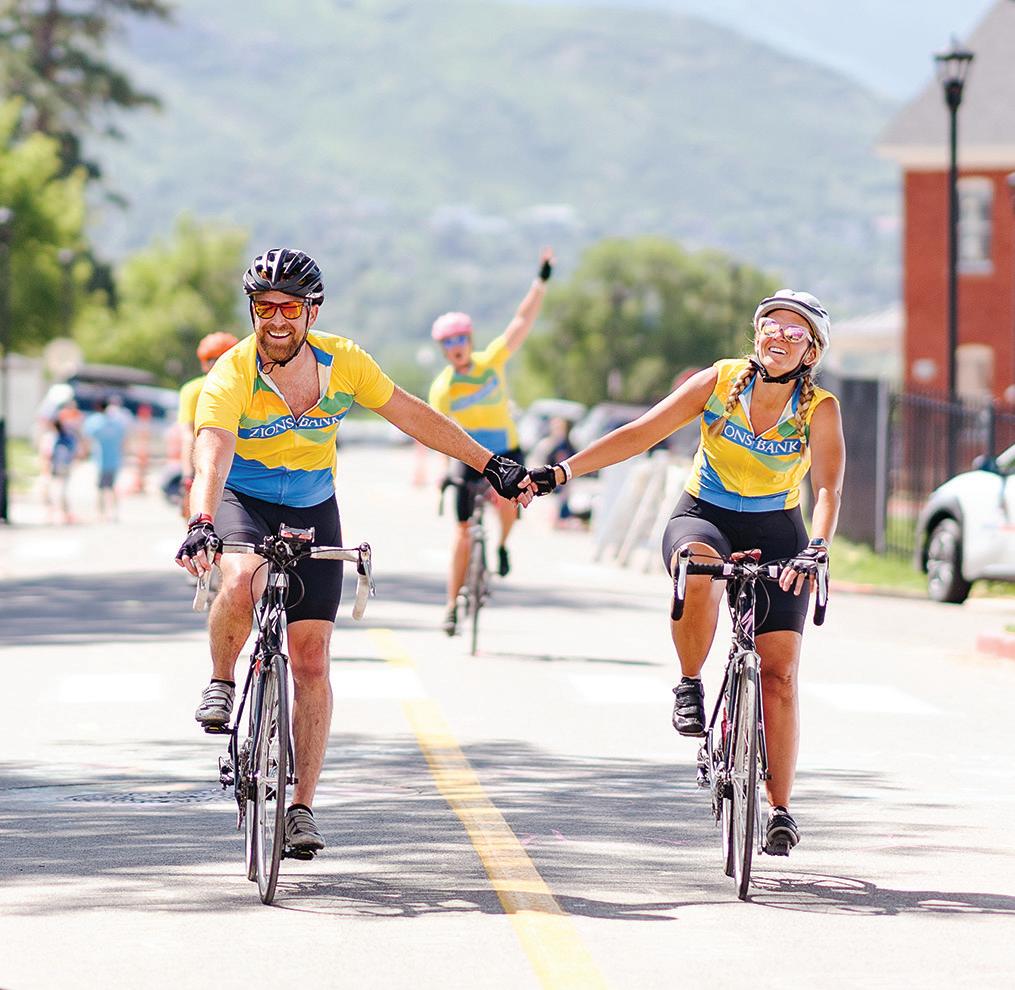

JUNE 8, 2024
JOIN US TO WALK, RUN, RIDE, AND PLAY IN SUPPORT OF HUNTSMAN CANCER INSTITUTE.
More than just a chance to get out and move, Huntsman SportsFest is a day to make a difference! Ride, run, walk, or play to create a future free from cancer—100% of your fundraising propels breakthrough research, treatment, and prevention efforts at Huntsman Cancer Institute.
Participants can register as individuals, families, or teams and designate fundraising to a specific type of cancer that has affected them or a loved one. Register today and join us on June 8, 2024, to celebrate, remember, and rally together to eradicate cancer.
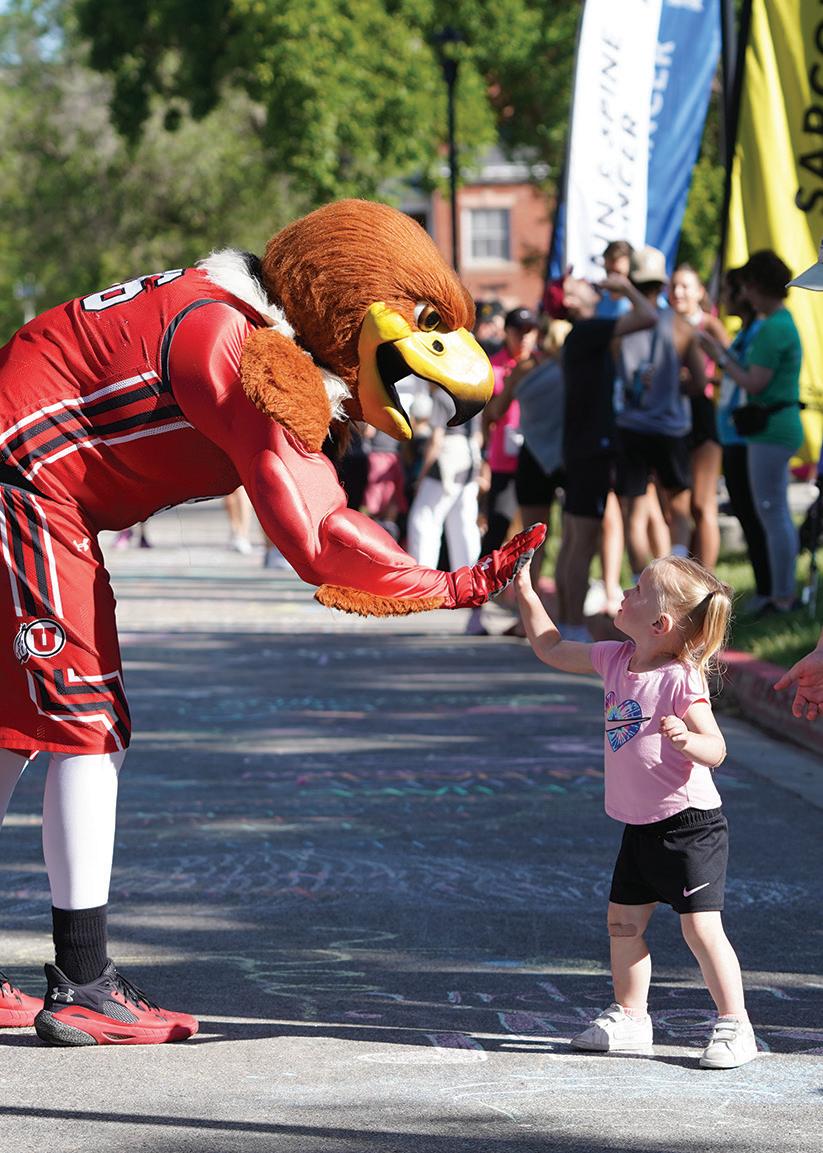
hope.huntsmancancer.org/sportsfest24
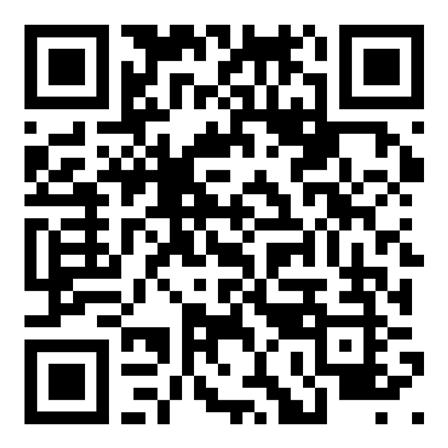
SPOR TS FEST
18
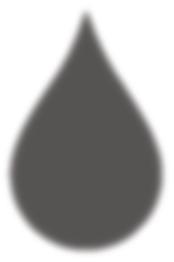
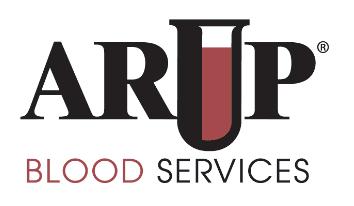

19
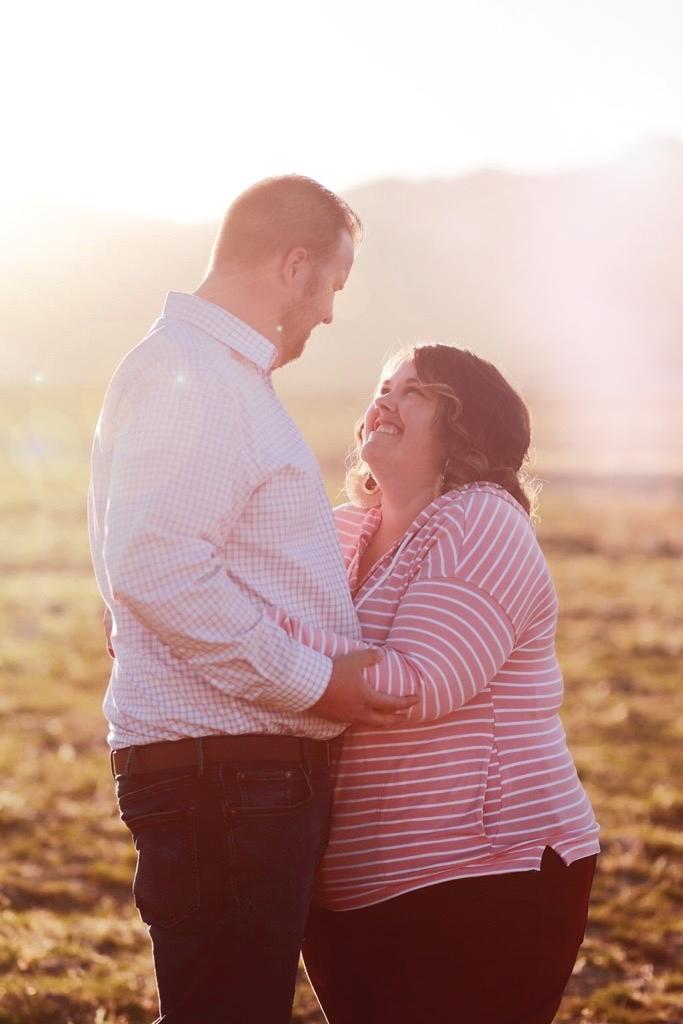
Labor oflove
An Honest Look at Cancer Caregiving
Jay Larson’s wife was diagnosed with an oligodendroglioma, a rare type of brain tumor. He shares his honest experiences, emotions, and some advice while caring for and loving his spouse.
I have had several defining moments in my life, but one of the greatest has been that of a caregiver to a spouse who has cancer. From the devastating diagnosis, through the seemingly endless treatments, to the monthly scans to see where we stand, we have found ourselves feeling every possible emotion.
The ups and downs are difficult to navigate. Managing your stress and expectations while caring for your loved one is a challenge. I’ve learned that caregivers are not defined by our circumstances, but our response to the challenges and opportunities we face during our labor of love. Our greatest victories and lowest moments happen in the quiet of our minds and away from the public eye.
Very few fully understand what caregivers go through. We are prone to feeling lonely, even when in a crowded room. Our family and friends notice that we have changed. Even though I feel a great sense of pride and self-respect for what I have become, I still face waves of unsuspecting anger at this disease. Despite those emotions, I can tell that my heart has been softened because I can understand others at a level I never had been able to before.
I know how much hurt others in this situation can feel. Hopefully, you can sense the many conflicting feelings that I carry. If you are in the same situation, I hope you feel seen. I care about you and hope you know that someone
20
“Caregiving is complicated and requires so much effort. It’s scary, frustrating, challenging, rewarding, and beautiful. The bad and the good. It’s all the things!”
else out there totally gets it. It’s quite normal to feel this way.
So, my fellow caregivers, when you feel lost, lonely, burned out, or overwhelmed, I hope you can see you’re not defined by your feelings and challenges.
Place one foot in front of the other and carry on. You are valued and should feel proud and confident in your abilities and your character, because both have been tested by life.
Though this journey has been difficult, I would have it no other way. I have learned too much about myself and others to ever turn back. I am grateful to call myself a caregiver, as each and every one of you should be. The pressure we face is a privilege.
Much love.
Jay Larson

Caregivers who take care of their own well-being can give better care to their loved ones.
To learn more, visit huntsmancancer.org/caregivers
21
Jay and Soji Larson
mediterranean couscous bowl
what you’ll need
serves 2 40 minutes
1/2 cup dry pearl couscous
1 cup cherry tomatoes
2 cups baby kale
2 tsp minced garlic
2 tsp olive oil
6 oz raw chicken breast (roughly double the size of your palm)
4 tbsp feta cheese
2 tsp dried oregano
4 tbsp hummus
how to make it
Chop the chicken into bite-size pieces. In a medium bowl, toss the chicken with olive oil, garlic, oregano, and a dash of salt and pepper.
Heat a large pan over medium-high heat. Add the chicken to the pan and cook through until it reaches an internal temperature of 165º F.
While the chicken cooks, cook the pearl couscous according to package instructions.
Remove the chicken from the pan and set aside. Add cherry tomatoes to the pan and cook until wilted and easy to smash with a spatula.
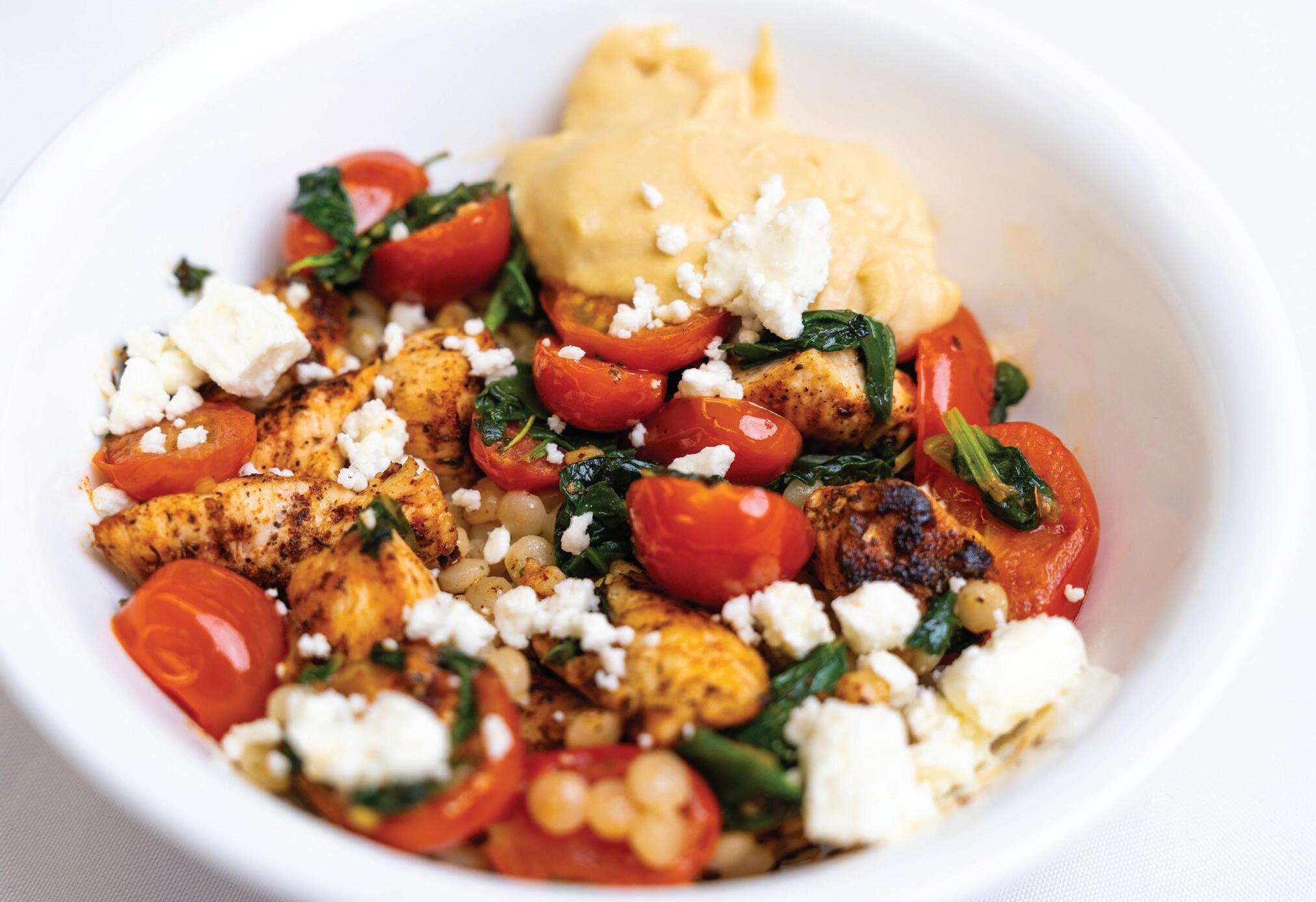
Add the kale and cooked chicken to the pan with tomatoes and cook until the kale is wilted. Remove from heat.
Transfer the pearled couscous to two serving bowls. Add the chicken-vegetable mixture. Top with feta cheese and hummus. Enjoy!
HEALTHY RECIPES FROM THE BOOST STUDY
mango mixed berry smoothie
what you’ll need serves 1 · 5 minutes
1/2 cup frozen mangoes
3/4 cup frozen mixed berries
1 cup nonfat milk
1/4 cup nonfat vanilla Greek yogurt
how to make it
Combine all ingredients in a blender and blend until smooth.
Pour into a 12 oz glass of choice and enjoy!

These recipes are courtesy of the BOOST study for bladder cancer patients. It is part of a
high-calorie, immune-enhancing diet. To learn more about the study, contact the Clinical Research Coordinator at 385-645-3339. 23
high-protein,
brought to you by the Huntsman Cancer Institute’s Wellness & Integrative Health Center
24 3 4 5 6
ness
w e
1 3 5 14 6 9 10 11 12 13 15 16 17 18 20 21 4 8 2 7 19 22
crossword c n t e
ll
3 Naturally occurring substance in some homes that can cause lung cancer with long-term exposure
7
9
10
13
15
16
17
20
21
22
1
2
4
5
6
that visits hospitals for therapeutic benefits and increased morale
25 ACROSS
Animal
Type
of scan used to detect breast cancers early
Type of
singing
therapy involving
or instruments
A low-impact mat exercise that improves balance and strength
Water-based physical activity recommended for lymphedema management
Fruit known for high antioxidant content
Dietitians recommend a minimum of five servings of this food group daily
Screening test for cervical cancer
Types of this treatment include Swedish, orthopedic, and shiatsu
Taking one of these creative group sessions can help reduce stress and anxiety DOWN
One of the best ways to remove germs, avoid
prevent the
getting sick, and
spread of viruses
Writing these is a creative
to express thoughts,
and experiences
way
feelings,
Best type of exercise for heart health
Mineral important for bone health, often paired with vitamin D
Omega-3s that benefit heart health and reduce inflammation are in this meat
Do this to practice calm mental focus, reflection, and mindfulness
Ancient treatment that uses tiny needles to reduce nausea, pain, hot flashes, and neuropathy The human body is about 60% of this substance; adequate intake improves skin health, aids digestion, and boosts energy 14 With regular use, helps prevent skin cancer 15 7-9 hours of this daily activity is essential for mental and physical health 18 Spice known for its anti-inflammatory properties 19 Stopping this habit reduces the risk of lung cancer by 30-50% Massage Yoga Pap Smear Water Art Class Mammogram Poems Sunblock Blueberries Fish Music Acupuncture Handwashing Swimming Dog Meditate Smoking Turmeric Radon Vegetables Calcium Cardio Sleep 3 10 7 9 13 15 16 17 20 21 22 1 5 2 4 6 8 11 12 14 15 18 19
more about the classes and services offered by the Wellness & Integrative Health Center: huntsmancancer.org/wellness
8
11
Learn

Planning a second National Cancer Institute-designated Comprehensive Cancer Center in Utah county
huntsmancancer.org/vineyard
DELIVERING A CANCER-FREE FRONTIER™















 Medical student Adrian Portillo
Medical student Adrian Portillo



















